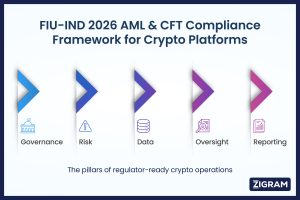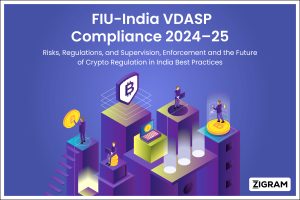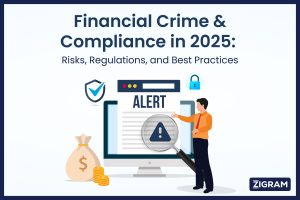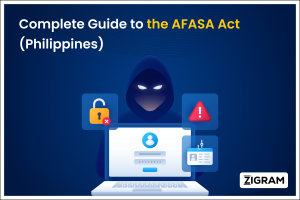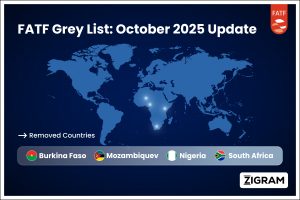Table of Contents
“Pig butchering” scams, also known in Chinese as “sha zhu pan”, are a particularly pernicious kind of online fraud. In these schemes, scammers “fatten up” victims through romance or friendship-based trust-building (via chat, social media, or dating platforms), before convincing them to make fake investments (often in cryptocurrency or bogus trading apps) from which they are unable to retrieve funds. The victims are emotionally manipulated, financially exploited, and often victims of transnational criminal networks.

While this kind of scam has existed in many forms globally, recent events in the Philippines, especially in Bamban, Tarlac, have put a spotlight on how such frauds have evolved into large-scale operations involving human trafficking, complicity of local officials, and massive infrastructure.
This article traces how Bamban became a hub for such scams, what has happened in Mabalacat City and in Pampanga more broadly, what the government has done so far, and what further measures are needed.
Bamban, Tarlac: From Farming Town to Scam Enclave
Origins and Infrastructure Development For Scams
Bamban, historically an agricultural municipality in Tarlac province, began to change as enterprises that required less than full regulation started to take hold. Around 2019-2020, land acquisition escalated by individuals connected to emerging online gambling, gaming, or online services business fronts. A large compound (often referred to in media as the Baofu Compound) was built on land tied to Alice Guo (Guo Hua Ping). Permits and Letters of No Objection (LONO) for POGOs (Philippine Offshore Gaming Operators), online gaming, and related businesses were processed with surprising speed—some reports say in a day. This enabled rapid construction: dormitories, offices, walls, secure entrances and even rumored tunnels. [1]
Mode of Operation: Pig Butchering Modus
Once the infrastructure was in place, the compound functioned to carry out pig butchering scams at scale. This involved recruiting large numbers of workers (Chinese, Vietnamese, Filipino, Malaysian nationals) to staff romance/investment fraud operations. Workers were housed in dormitory setups, with strict oversight. Many had their phones confiscated or restricted, quotas to meet, threats for non-compliance, and severe limits on movement. Victims abroad would be seduced into emotional relationships, “fattened” via messages, deception, etc., then urged to invest in fake financial instruments. The compound was designed to be self-contained and capable of producing large volumes of scam content and communication. [1]
Role of Local Governance and Alleged Complicity
A key factor in Bamban’s rise as a scam enclave is the alleged involvement or complicity of local government officials. Alice Guo, mayor of Bamban (since 2022), is accused of owning the land where the compound stands, fast-tracking permits, issuing LONO’s even when parts of the usage were suspect, and possibly using front companies (e.g. farms, pork supply businesses) to launder proceeds or to provide cover. The proximity of the compound to her municipal hall—such that its walls were visible from her office—raises questions about how hidden or unhidden these operations were. Reports by investigatory journalism and authorities suggest abuses of local regulatory processes, possible conflicts of interest, and corruption. [1]
Human Rights and Victim Stories
Rescues of workers from the compound revealed serious human rights abuses. In one operation, over 800 people were rescued; in total, the compound held ~3,000 people during peak operation. Some claimed that they were prevented from leaving, that their phones were taken, that they were forced to work under threat, had quotas, and had little rest or freedom. Some were foreign nationals, some Filipino. There were also reports that some workers were misled into believing they were going to do legitimate work for good pay, only to discover the nature of the scam operation once they were already inside the compound. [1]
Discovery, Legal Action, and Fallout
Authorities came to suspect the compound through tips—some from foreign nationals who felt trapped others from journalists that traced permit irregularities. Major raids were conducted in 2024. Legal cases were filed for money laundering, human trafficking, illegal detention, etc. Alice Guo was arrested in Indonesia, deported back, and is now facing trial. Prosecutors have also sought recovery of assets like real estate, luxury vehicles, and other holdings allegedly acquired through illicit operations. The case has become a signal event, showcasing how a complex network operated at large scale, crossing local regulation, foreign jurisdictions, and exploiting victims abroad. [1]
Mabalacat City, Pampanga: Spillover and Broader Issues
Multiple Hubs and Diverse Locations
Unlike Bamban’s large centralised compound, Pampanga (especially Mabalacat City and its environs) has become host to multiple smaller hubs scattered across resorts, subdivisions, villas, and residential units often masquerading as legitimate hospitality or POGO/government-licensed facilities. For example:
- In August 2025, raids were conducted in the Asian Greenville Resort in Barangay Jose Abad Santos, Mabalacat City, and a condominium unit in Clark Hills Village. In the first location, 24 Chinese nationals (22 male, 2 female) were arrested for operating a cryptocurrency investment scam hub; Filipina women were also found and rescued. In the second location, three more Chinese nationals were arrested for phishing and other scam ventures. [9]
- Earlier, operations in the Clark Freeport Zone rescued large numbers of people from a call center / scam call center-style operations. One huge rescue was of over 1,000 people (with 919 of them foreigners) from a POGO “hub” in Clark Sun Valley Hub Corporation. [3]
- There have also been raids in Porac, within the Mabalacat area (or closely tied), involving “big boss” arrests in the villas in Fontana Leisure Parks, resorts being used as hideouts, etc. [4]
Forms of Exploitation, Victims, and Human Trafficking
In Pampanga, the victims have included both foreign nationals and Filipinos. Some were misled; others appear to have been trafficked under false promises. Key exploitative practices include:
- Illegal recruitment: false or misleading job offers, sometimes via overseas job-recruiting networks, but in many cases domestic recruitment for online jobs. [5]
- Confinement: in quasi-dormitories, with restrictions on movement, no phones or confiscated phones, forced work hours, quotas, threats. For example, during one large rescue (Clark Sun Valley Hub), the rescued reported 18-hour work days, dorm living, restrictions on speaking, etc. [5]
- Exploitation of minors in some cases: in one raid in the Clark Freeport Zone, among those rescued were children under 18. [6]
- Use of legitimate business facades: POGO licenses or gaming licenses, hospitality or resort operations, etc., to hide real activity. Villas, resorts, or subdivisions are used to hide or shelter people when under investigation. [7]
Government Raids, Policy Enforcement, and Responses
Authorities in Pampanga have repeatedly conducted raids, issued search warrants, arrested managers / “big bosses,” and rescued victims. Key highlights:
- The May 4, 2023 raid at Clark Sun Valley Hub rescued 1,048 people. [3]
- The 2024 raids in villas in Fontana Leisure Parks in Porac arrested a Chinese “big boss” and seized safety vaults. [6]
- The latest (2025) raids in the Asian Greenville Resort and Clark Hills Village involved coordination among multiple agencies (PNP, Bureau of Immigration, Intelligence). Many electronic devices were confiscated and are being forensically examined. [2]
Local police leadership has also been held accountable in some cases. For example, after a large POGO hub raid in Barangay Sta. Cruz, Porac, the Municipal Police Station chief was relieved, pending investigations for possible negligence or complicity. [7]
Weaknesses, Cover-Ups, and Ongoing Challenges
- Permit and zoning loopholes: Hubs use POGO licensing, resorts, or hospitality permits—often legitimately issued or partially valid—to mask scam operations.
- Detection difficulty: Because operations are more decentralised, smaller, and often hidden in residential or resort areas, they are less visible than a large compound, making intelligence gathering harder.
- Victim reluctant to speak out: Many are foreign nationals, some undocumented or recruited via networks with power asymmetries, fear reprisals, deportation, or legal trouble.
- Corruption or neglect: Local enforcement may be weak, police oversight may be compromised, and sometimes local officials may turn a blind eye or be implicated.
Government Response: What Has Been Done
The Philippine government, at multiple levels—local, national, law enforcement, regulatory—has taken several actions once the Bamban scandal came to light and more broadly to combat illegal POGOs, scam hubs, and human trafficking tied to online fraud.
Investigations, Charges, and Arrests
- In Bamban, after raids in 2023 and 2024, authorities filed human trafficking charges against Mayor Alice Guo (Guo Hua Ping) and others. [4]
- She was suspended and her control over local police forces (via the National Police Commission / NAPOLCOM) was ordered to be stripped (or at least the process started) due to the alleged complicity in the operations. [4]
- Police forces in Bamban were reshuffled with many officers relieved of duty pending investigations into their possible involvement or negligence.
[6]
Regulatory and Law Enforcement Oversight
- The PNP has created a task force against illegal POGOs / illegal gambling / Internet Gaming Licensees (IGL). The group is meant to coordinate intelligence, investigations, and legal operations. [8]
- Presidential Anti-Organized Crime Commission (PAOCC) has been involved, as have the Criminal Investigation and Detection Group (CIDG) and Anti-Cybercrime Groups, in conducting raids, investigations, and legal proceedings. [8]
Extradition, Deportation, and Identity Verification
- Alice Guo, after fleeing the Philippines, was arrested in Indonesia in September 2024 and deported back to the Philippines.
- There have been investigations into her identity, including fingerprint checks, citizenship status, and record-irregularities (for example birth certificate, nationality questions). [10]
Legislative & Policy Moves
- The government has publicly stated intentions to ban or heavily regulate online gambling / POGOs, particularly illegal ones. E.g. President Marcos Jr. has expressed concern about how POGOs have been abused for illicit activities. [10]
- Multiple show cause orders and regulatory inspections have been issued, especially in other sectors (e.g. swine farms) when regulations are violated. While not directly tied to pig-butchering scams, they reflect growing regulatory strictness. [11]
What More Can Be Done Regarding Pig Butchering Scams
While significant steps have been taken, experts, civil society, and media reports suggest there is much more to do to prevent recurrence and to address systemic vulnerabilities. Below are recommendations and areas where action is needed.
Strengthening Laws and Closing Legal Gaps
Clearer legal definitions and sanctioning
- The legal framework needs to cover “scam centers” more explicitly where victims are held, coerced, and forced to commit fraud (including romance/investment scams). Some existing laws (human trafficking, anti-cybercrime, illegal recruitment) can apply, but might not cover all cases or perpetrators.
- Penalties and enforcement mechanisms should be strong enough to deter complicity of local officials, real estate owners, permit issuers, etc.
Regulation of POGOs / IGLs
- Ensure that licensing bodies (like PAGCOR or its successor bodies) have transparent and accountable procedures, including vetting of ownership, monitoring of operations, inspection of worker welfare, and regular audits.
- Require Letters of No Objection (LONO) or permits to have stricter checks, including verifying identity of applicants, financial records, proof of ethical operations, etc.
Cross-agency cooperation and oversight
- Ensure coordination between the various agencies like PNP (including CIDG, Anti-Cybercrime Unit), Philippine Amusement and Gaming Corporation (PAGCOR), Department of Interior and Local Government (DILG), Department of Justice (DOJ), Department of Labor and Employment (DOLE), immigration authorities, human trafficking task forces, etc.
- Establish dedicated inter-agency task forces with clear mandates, resources, and legal authority to investigate scam hubs.
Improving Enforcement & Accountability
Transparency in local government decisions and permits
- Local governments should publish data on permits, licenses, land ownership, foreign ownership, etc. This helps public scrutiny.
- Unauthorised or suspicious permits should be revoked promptly when evidence indicates misuse.
Police oversight and community monitoring
- Officers at municipal and regional police stations should be audited, both their performance in investigation and their potential corruption or neglect.
- Local communities (barangays) and media should be empowered to report suspicious operations; whistleblower protections should be robust.
Victim rescue, protection, and support
- Strengthen programs for rescuing those held in scam compounds, ensuring they are treated as victims (especially foreign nationals or coerced individuals), not simply prosecuted.
- Provide psychological, legal, and financial assistance to victims.
Prevention, Public Awareness and International Cooperation
Awareness campaigns
- Many victims are first approached via social media, dating apps, or chat platforms. Public education on how pig butchering scams work is essential (signs of romance catfishing, fake investment schemes, too good to be true returns, etc.)
- Collaborate with platform owners (social media, messaging apps, dating sites) to issue warnings, scrutinise suspicious accounts, and remove content promoting fake investment or fortune-making schemes.
International cooperation
- Because many victims and perpetrators cross borders, cooperation with other countries (for extradition, investigation, tracking financial flows, etc.) is critical. The arrest of Alice Guo in Indonesia is one example.
- Cooperation with tech platforms, financial institutions, cybersecurity organisations to trace and shut down fraudulent investment websites, crypto wallets, etc.
Regulating virtual assets / cryptocurrencies
- Many pig butchering scams rely on crypto investment platforms. Improved regulation of virtual asset service providers (VASPs) can help reduce leakage of fraud.
- Require transparency, compliance with anti-money laundering (AML) laws, and know-your-customer (KYC) protocols for any platforms involved (or purporting to be involved) with investments.
Institutional Reforms & Oversight
Judicial improvements
- Speed up prosecution of fraud, trafficking, money laundering cases to ensure that perpetrators are held accountable.
- Assure that evidence is preserved; ensure complaint mechanisms are accessible.
Strengthening immigration and identity verification systems
- Because some accused persons had identity inconsistencies, requiring stricter verification of applicants for public office, property ownership, or permit application (especially those involving foreign nationals or foreign investment).
- Monitor foreign recruitment: many victims are lured by job offers or promises of opportunity abroad. Ensure that migration or recruitment agencies comply with legal standards.
Transparency in financial transactions and asset tracing
- Use of Financial Intelligence Units / Anti-Money Laundering Council to track suspicious large transactions, seizures, freezing of assets tied to suspected scam operations.
- For local government officials, enhanced disclosures of assets, real estate, foreign bank accounts, etc., and enforce penalties for false disclosure or conflicts of interest.
Challenges and Risks
While there is a path forward, several structural challenges make dealing with pig butchering and similar scam hubs difficult:
- Corruption and complicity at different levels: local permitting, police oversight, property registrations, licensing. When local officials are allegedly involved, as in Bamban, that complicates enforcement.
- Transnational nature: many perpetrators, workers, and targets are from different countries; operations are designed to exploit legal loopholes.
- Technology and camouflage: Scam centers often masquerade as legitimate businesses (e.g. call centers, online gaming, gambling, POGOs). They build permits, shells, fronts, making detection harder.
- Victims reluctant to report: fear of retribution, shame, or because they believe they have done something wrong. Many are foreign nationals or migrants, adding language, legal, and social barriers.
- Regulatory lag: law and enforcement often react to visible scandals; but fraud operations move faster than legislation often can.
Lessons and Broader Implications
- Bamban is a cautionary case about how a small town with relatively little oversight became a large scam base, involving thousands of people, with a façade of legitimacy.
- The case suggests that monitoring of local governance, permit issuance, land ownership, and foreign involvement needs to be much tighter.
- It underscores the need for national authorities to take pre-emptive action rather than waiting for large scandals; data collection, intelligence gathering, inter agency coordination are key.
- Also, how social media, cross-border recruitment, and virtual economies (crypto, online investment platforms) are intertwined with fraud, making traditional law enforcement and regulatory frameworks insufficient on their own.
Conclusion
The story of Bamban, Tarlac moving toward becoming “ground zero” of pig butchering scams is one of evolving criminal sophistication, exploitation of administrative loopholes, local complicit behavior, and weak oversight. The government’s steps – raids, arrests, removal of officials, forming task forces – are real and necessary. But to prevent such a phenomenon elsewhere, or to prevent recurrence in Bamban or similar towns, more systemic changes are required.
If the Philippines can strengthen its legal frameworks, improve coordination, enhance oversight of local government functions (especially in licensing and land permits), enforce stricter regulation of POGOs and investment platforms, and promote public awareness, it has a chance of turning the tide against pig butchering scams. Otherwise, the costs – financial, human, and moral – are likely to grow.
Bibliography
1. How a Young Mayor Turned Her Town Into a Hub for ‘Pig Butchering’ Scammers – (Wall Street Journal)
2. 27 CHINESE NATIONALS NABBED IN SUSPECTED SCAM HUBS IN PAMPANGA – (Journal Daily News Online)
3. Gov’t agents raid POGO ‘hub’ in Angeles City – (Journal News Online)
4. Chinese ‘manager’ of Porac POGO nabbed in Pampanga raid – (Philippine News Agency)
5. 11 “Scam Call Center” Employees Charged in Pampanga – (PhilNews)
6. 2 Chinese nabbed, 13 rescued in raid of suspected Pampanga POGO – (SunStar Publishing Inc.)
7. PAOCC raids Clark resort where escapees from Porac POGO believed to be hiding – (GMA Network)
8. PNP creates task force vs illegal POGOs – (Philstar)
9. Indonesia arrests a fugitive former Filipino town mayor wanted for illegal online gaming scams – (AP News)
10. Philippines’ deported ex-mayor Alice Guo arrives home from Indonesia – (Reuters)
11. DA cracks down on unregistered hog farms – (GMA Network)
- #GENIUSAct
- #Stablecoins
- #AML
- #FinancialCrime
- #Compliance
- #CryptoRegulation
- #FinCEN
- #SanctionsCompliance
- #RegTech
- #AntiMoneyLaundering
- #DigitalAssets
- #FinancialSecurity

